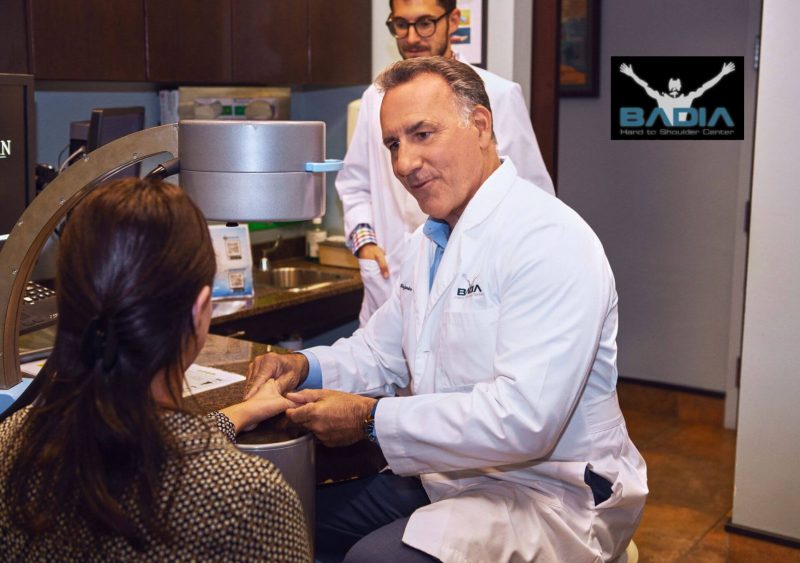CONSEJOS ORTOPÉDICOS
¿Es la cirugía adecuada para usted?

Elegir un plan de tratamiento para una afección ortopédica no debería ser una decisión apresurada. Piense en la compra de un automóvil.
Usted no entraría simplemente al primer concesionario y se llevaría el primer auto que viera. Exploraría sus opciones, compararía características y tal vez incluso haría algunas pruebas de manejo.
Su salud merece la misma consideración cuidadosa.
Aun así, muchas personas optan por la primera recomendación de cirugía ortopédica que escuchan, a menudo después de una búsqueda rápida como «médico ortopédico cerca de mí».
Si bien eso podría conducir a la respuesta correcta, vale la pena tomarse un tiempo. Ya sea cirugía de mano, reparación de hombro o procedimientos de columna, una segunda mirada puede marcar toda la diferencia.
Obtener una segunda opinión sobre cirugía ortopédica puede brindarle más claridad, más confianza y, a veces, incluso revelar tratamientos no quirúrgicos que se ajusten mejor a su estilo de vida y objetivos.
¡ATENCIÓN! Si está considerando una segunda opinión para su afección ortopédica, el Dr. Badia y su equipo están aquí para brindar una perspectiva experta. Programe una consulta en el Badia Hand to Shoulder Center para ganar claridad y confianza en su camino de tratamiento.
La importancia de una segunda opinión en la atención médica
En la atención ortopédica, las segundas opiniones no solo están permitidas. Se fomentan. Cuando enfrenta dolor, movimiento limitado o la posibilidad de una cirugía, merece comprender todas sus opciones.
La Academia Estadounidense de Cirujanos Ortopédicos (AAOS) apoya las segundas opiniones como parte de una atención responsable y centrada en el paciente. Pedir una no significa que usted sea difícil. Significa que está tomando el control de su salud.
Una segunda opinión puede ayudarle a:
- Confirmar o ajustar su diagnóstico
- Conocer alternativas de tratamiento
- Evitar la cirugía si funciona un enfoque menos invasivo
- Sentirse seguro en cualquier camino que elija
Razones clave para buscar una segunda opinión para afecciones ortopédicas
- La cirugía es compleja o de alto riesgo – Para procedimientos como reemplazos articulares o cirugía de hombro, una segunda opinión asegura que usted comprenda los beneficios, riesgos y perspectivas a largo plazo.
- Se siente inseguro o apresurado – Si salió de su cita con preguntas sin respuesta o se sintió presionado hacia la cirugía, es prudente consultar a otro experto.
- Los tratamientos previos no funcionaron – Si ya probó fisioterapia, inyecciones o medicamentos sin alivio, un segundo proveedor puede descubrir algo que su primer médico pasó por alto.
- Quiere explorar opciones no quirúrgicas – Algunas afecciones mejoran con rehabilitación guiada o tratamientos regenerativos. Otro médico puede sugerir opciones que se adapten mejor a sus objetivos.
- No se siente cómodo con su proveedor actual – La comunicación importa. Usted merece un médico que escuche y explique su atención claramente. Una segunda opinión puede conectarlo con alguien que se sienta más adecuado.
Preparándose para su consulta de segunda opinión
Para aprovechar al máximo su visita, prepárese. Lleve todo lo que el nuevo médico necesite para comprender completamente su condición.
Qué llevar:
- Copias de sus imágenes (radiografías, resonancia magnética, tomografía, ultrasonido)
- Notas o resúmenes de su primera consulta
- Una lista de los tratamientos que ha probado
- Una cronología de sus síntomas y cómo afectan su vida
Preguntas para hacer:
- ¿Hay algún tratamiento no quirúrgico que aún no haya probado?
- ¿Cómo es la recuperación para esta cirugía?
- ¿Cuántos de estos procedimientos ha realizado?
- ¿Cuáles son los riesgos y las expectativas a largo plazo?
- Si espero o pruebo algo más primero, ¿qué podría pasar?
Cuanto más informado esté, más seguro se sentirá en su próximo paso.
Si está programando una consulta virtual, el Dr. Badia también ofrece segundas opiniones a través de telemedicina.
Para preguntas comunes sobre cómo funciona esto, visite nuestra página de preguntas frecuentes.
Qué esperar durante una evaluación de segunda opinión
En su cita, el especialista revisará su historial médico, resultados de imágenes y síntomas. Puede recibir un examen físico o imágenes adicionales si es necesario.
El médico puede:
- Confirmar el diagnóstico y plan original
- Ofrecer un enfoque quirúrgico diferente
- Recomendar opciones no quirúrgicas
- Proporcionar una explicación más clara de los riesgos y resultados
Algunos pacientes llegan esperando cirugía, solo para enterarse de que pueden mejorar con rehabilitación guiada, medicina regenerativa o nuevas técnicas de manejo del dolor.
Otros aprenden sobre técnicas quirúrgicas más nuevas o un mejor momento para el procedimiento.
Incluso si elige el plan original, se sentirá más seguro e informado para seguir adelante.
Incluso con una configuración ergonómica ideal, su cuerpo no está diseñado para permanecer inmóvil durante horas.
Hacer pausas frecuentes para moverse es crucial para prevenir el dolor y la tensión, ya sea que trabaje en una oficina o desde casa.
Aquí hay algunos consejos simples de movimiento y ejercicios para mantener su cuerpo cómodo y libre de lesiones durante todo el día:
Ganando confianza en su decisión de tratamiento
Una segunda opinión no se trata de elegir bandos. Se trata de aprender y ganar perspectiva.
La investigación muestra que las segundas opiniones a menudo refinan o cambian el plan de tratamiento.
Incluso si ambos médicos están de acuerdo, se sentirá más seguro en su decisión.
Usted puede descubrir:
- Un plan de tratamiento que se ajuste mejor a sus valores y estilo de vida
- Una opción con una recuperación más corta
- Una comprensión más profunda de los pros y los contras
- Un cirujano cuyo enfoque se sienta más personal y claro
Si las opiniones son diferentes, tómese el tiempo para sopesarlas. Pida investigación de respaldo.
Considere sus objetivos para el alivio del dolor, la movilidad y la calidad de vida.
Referencias






